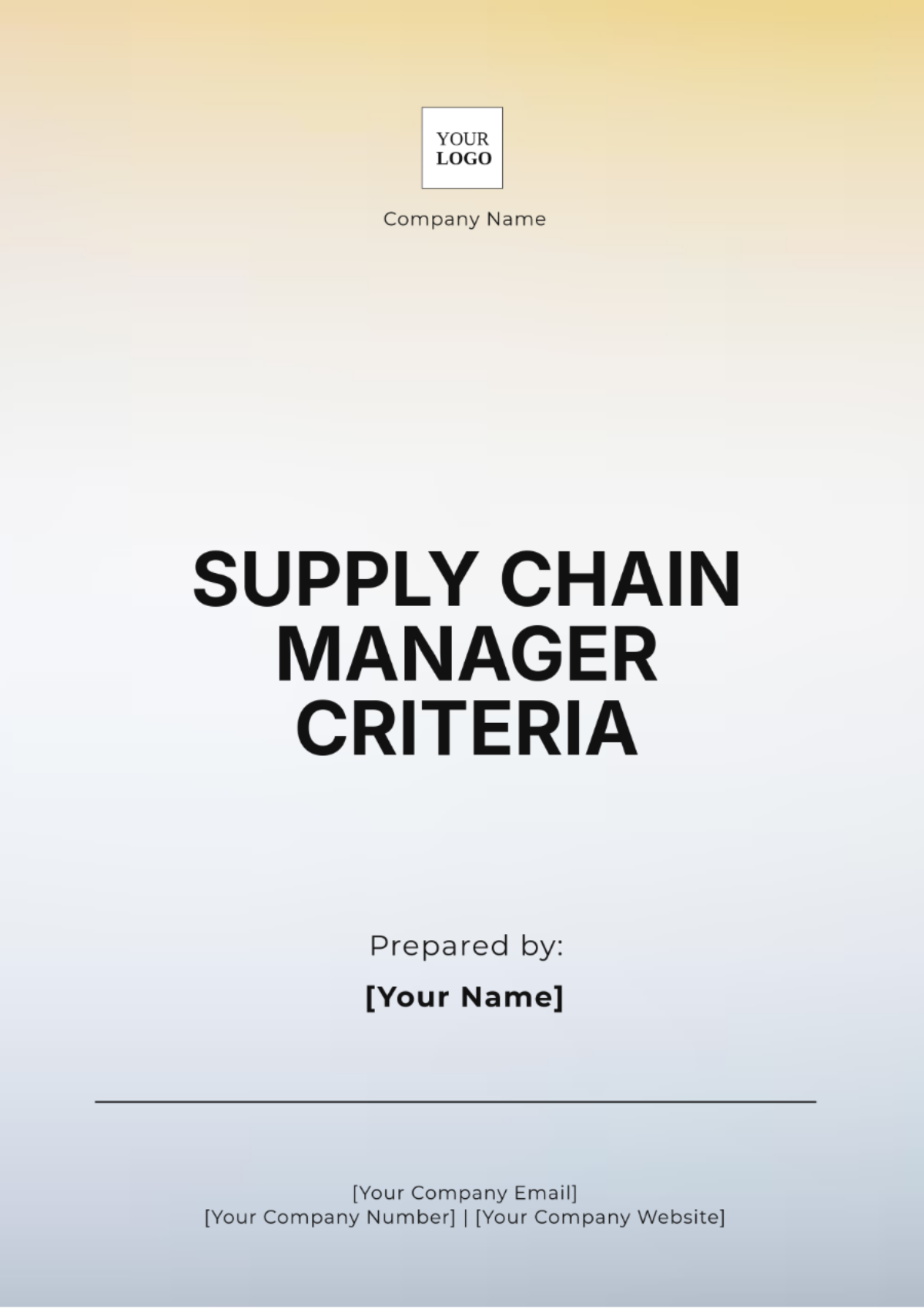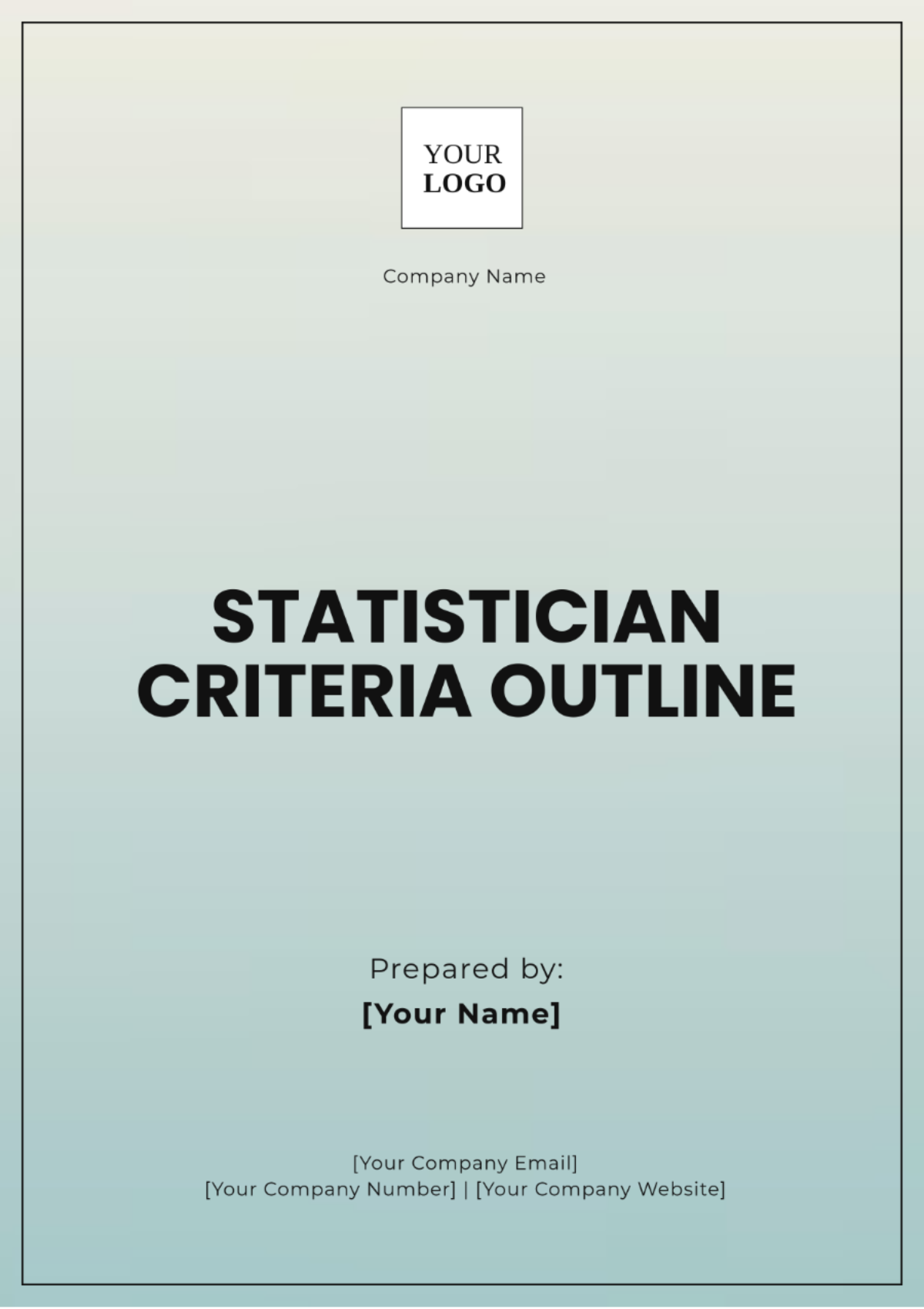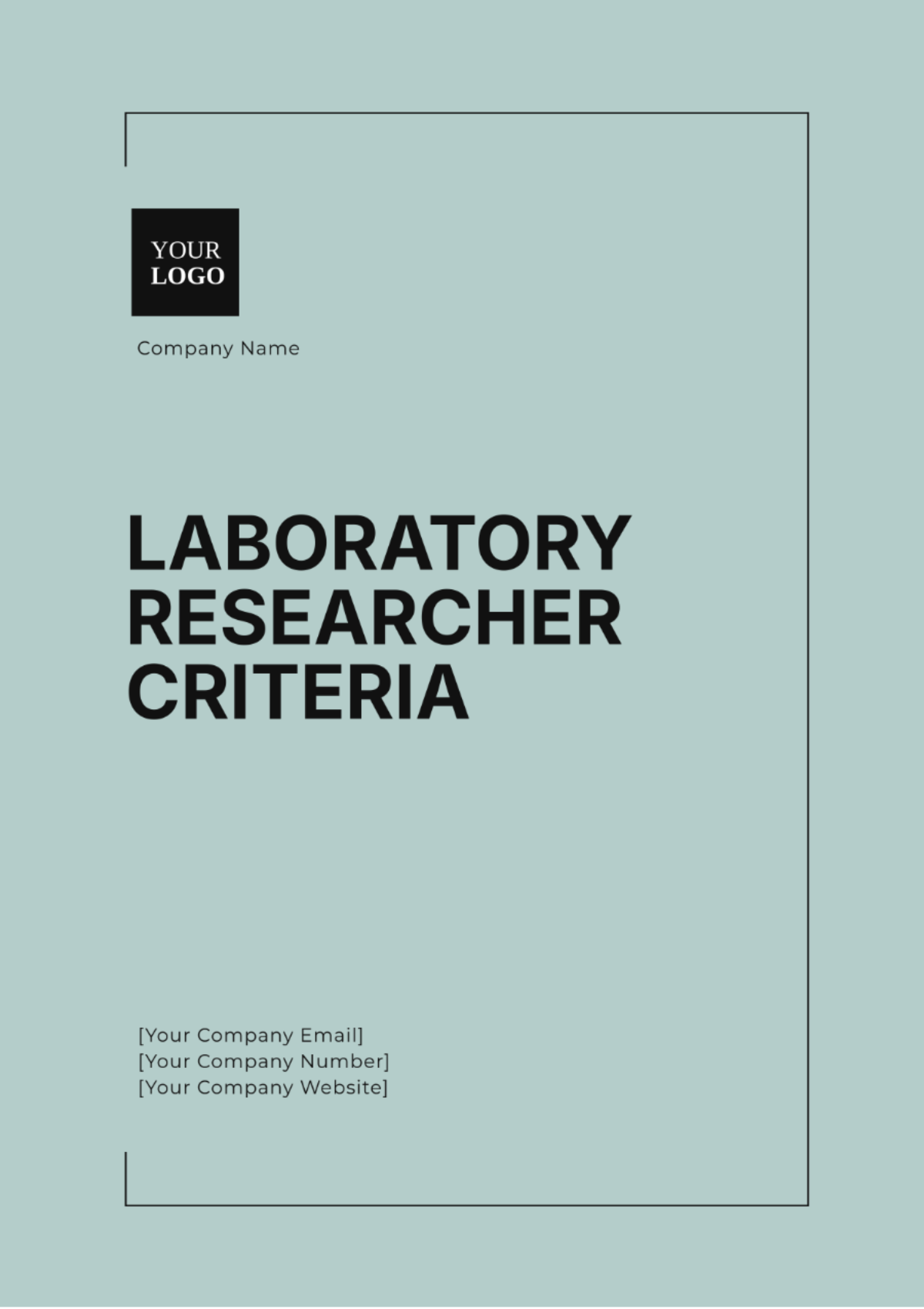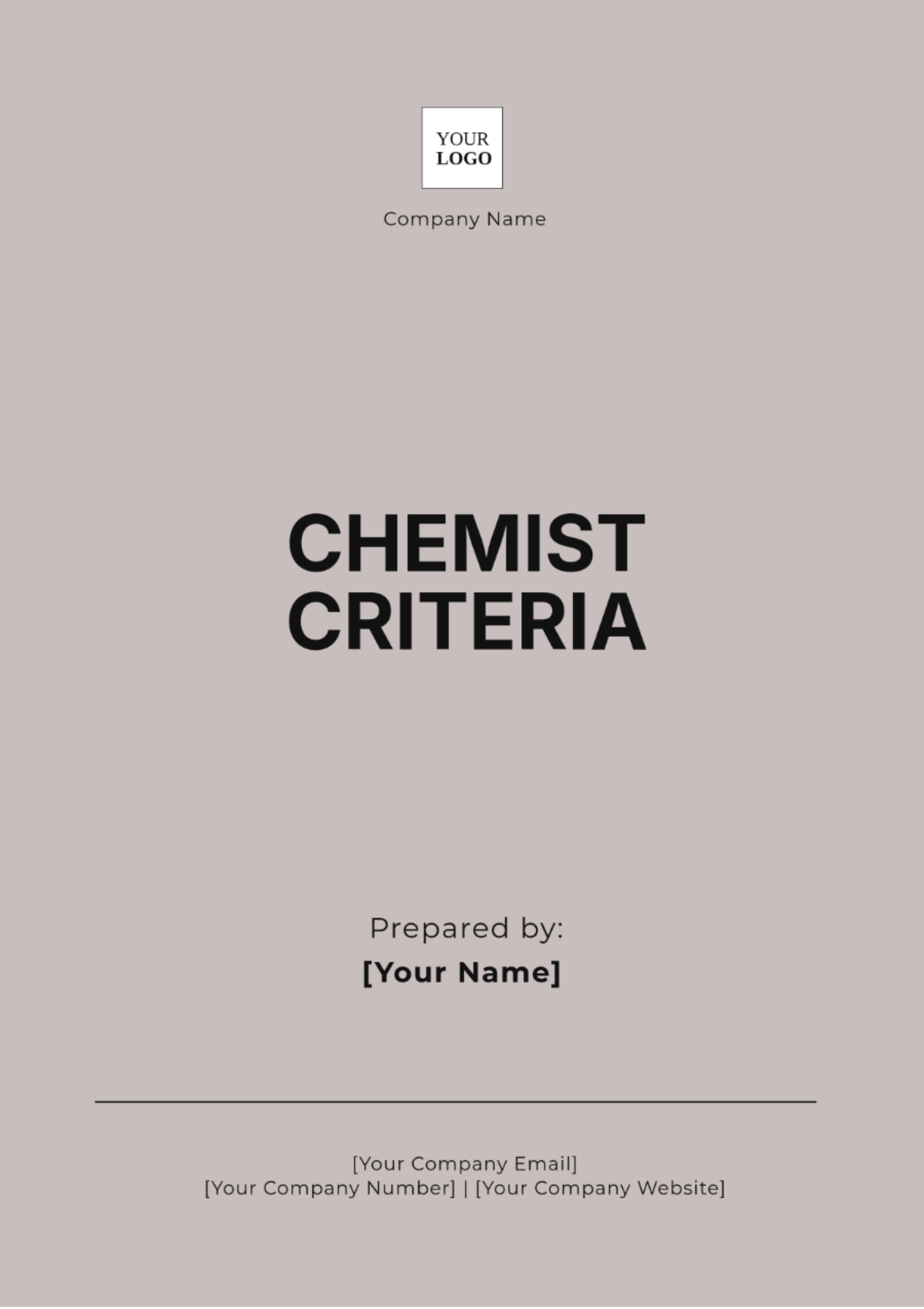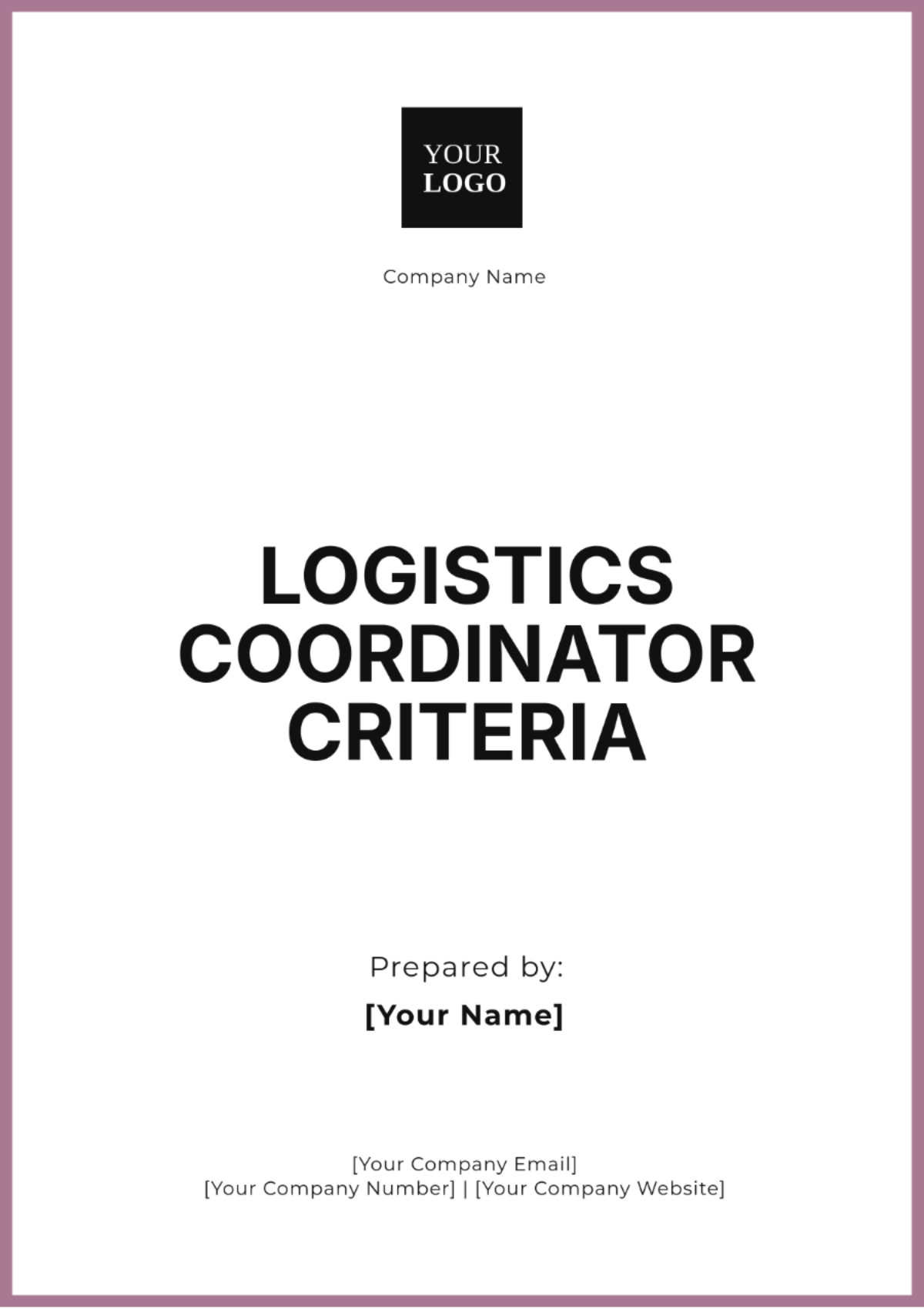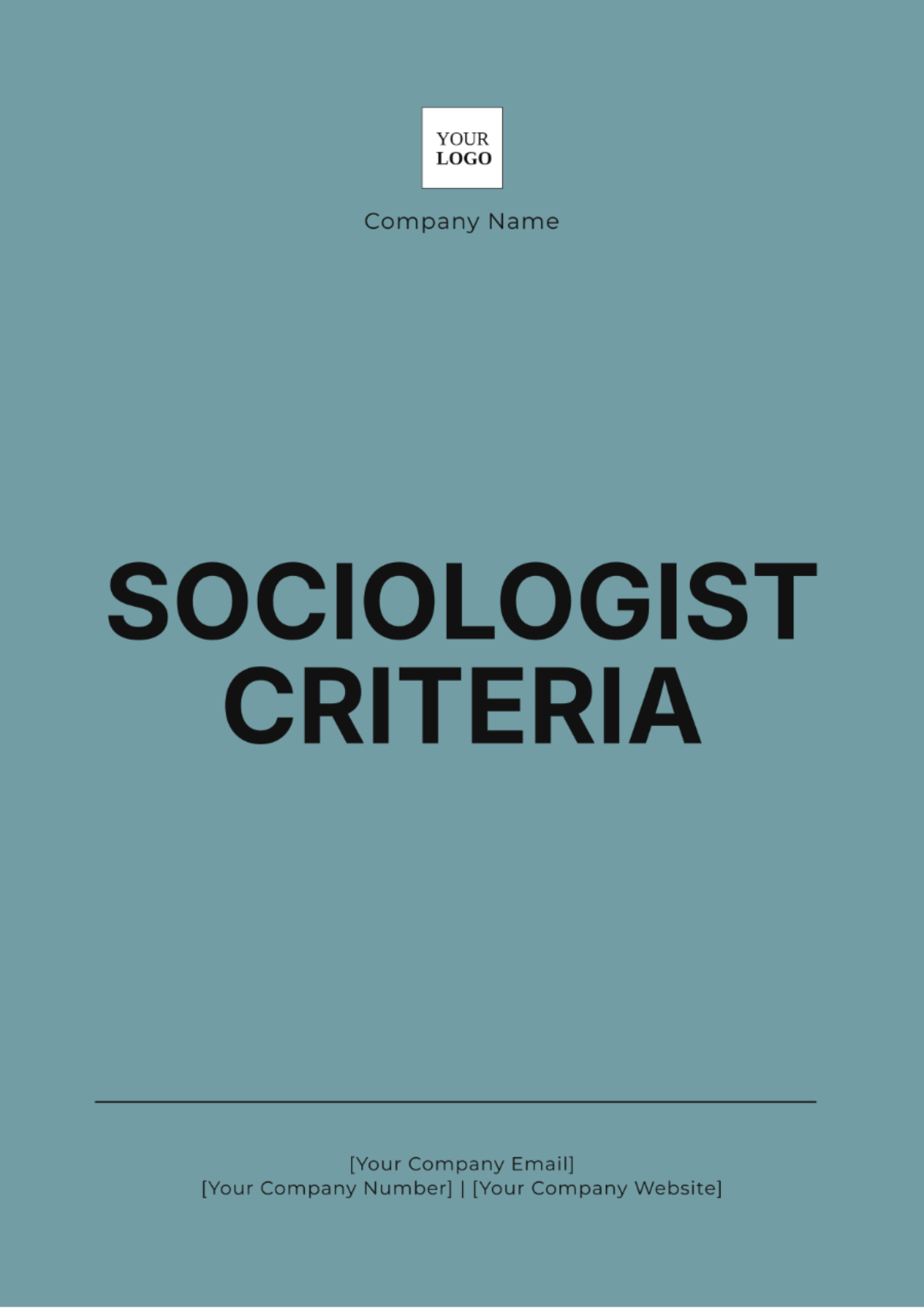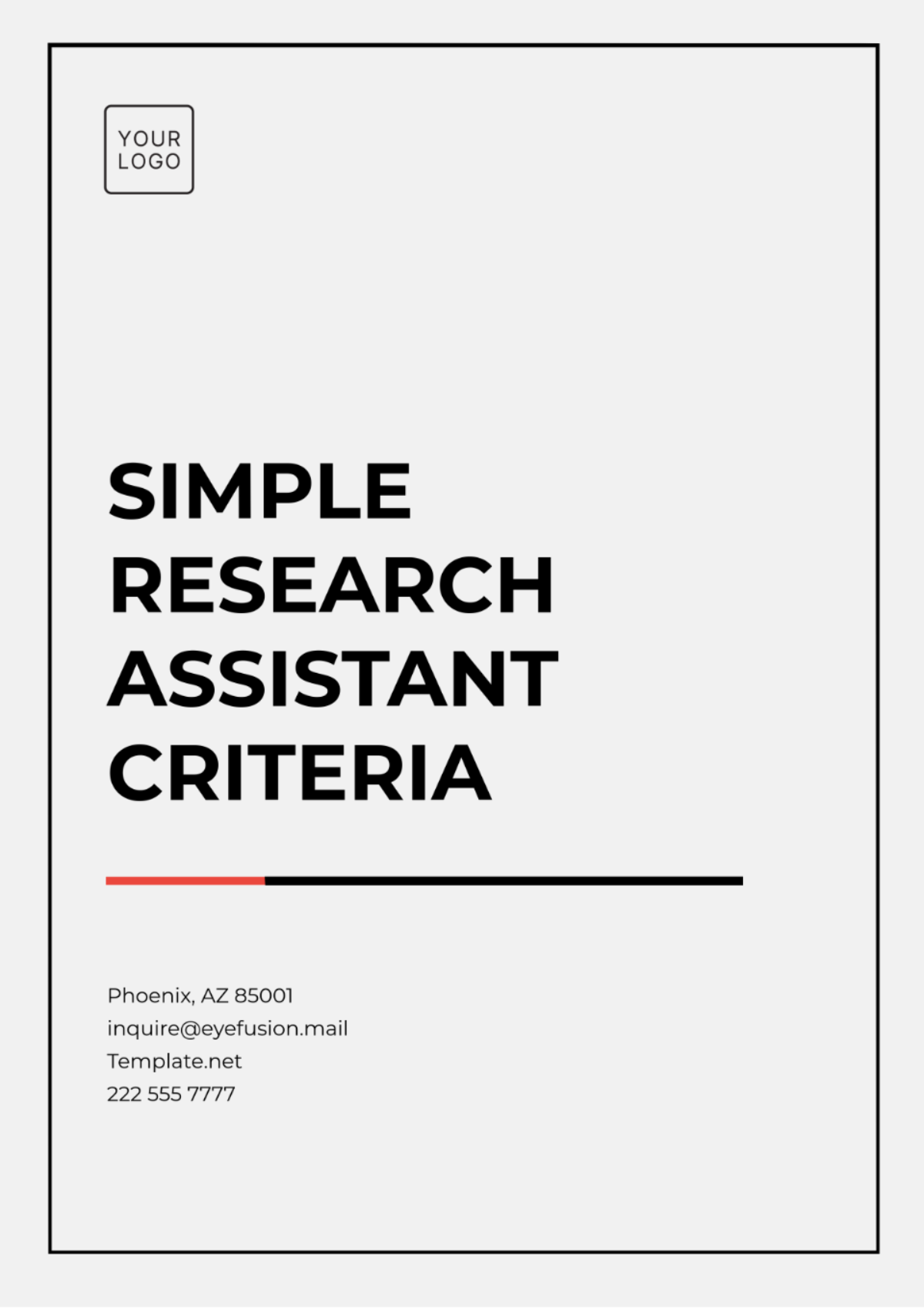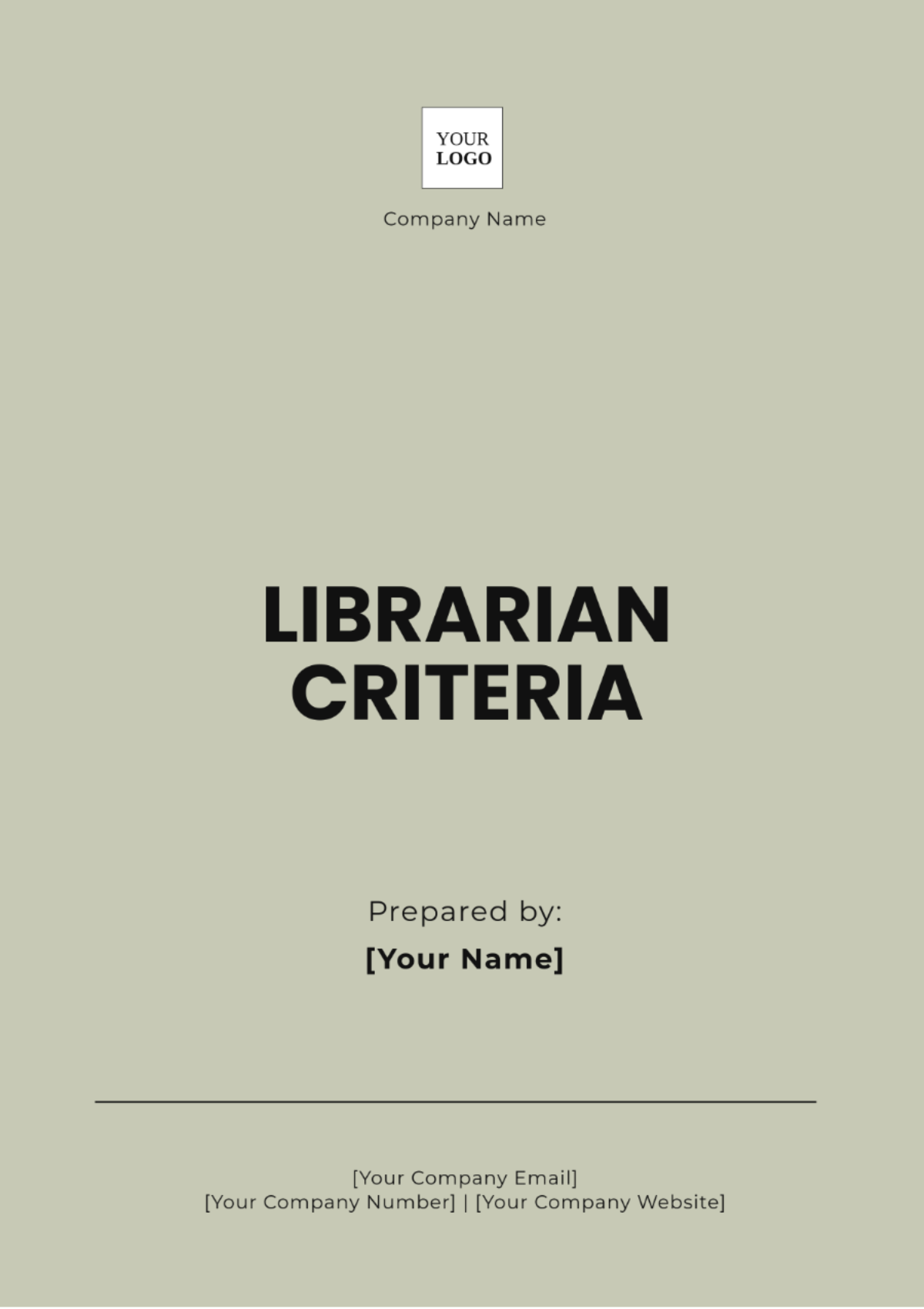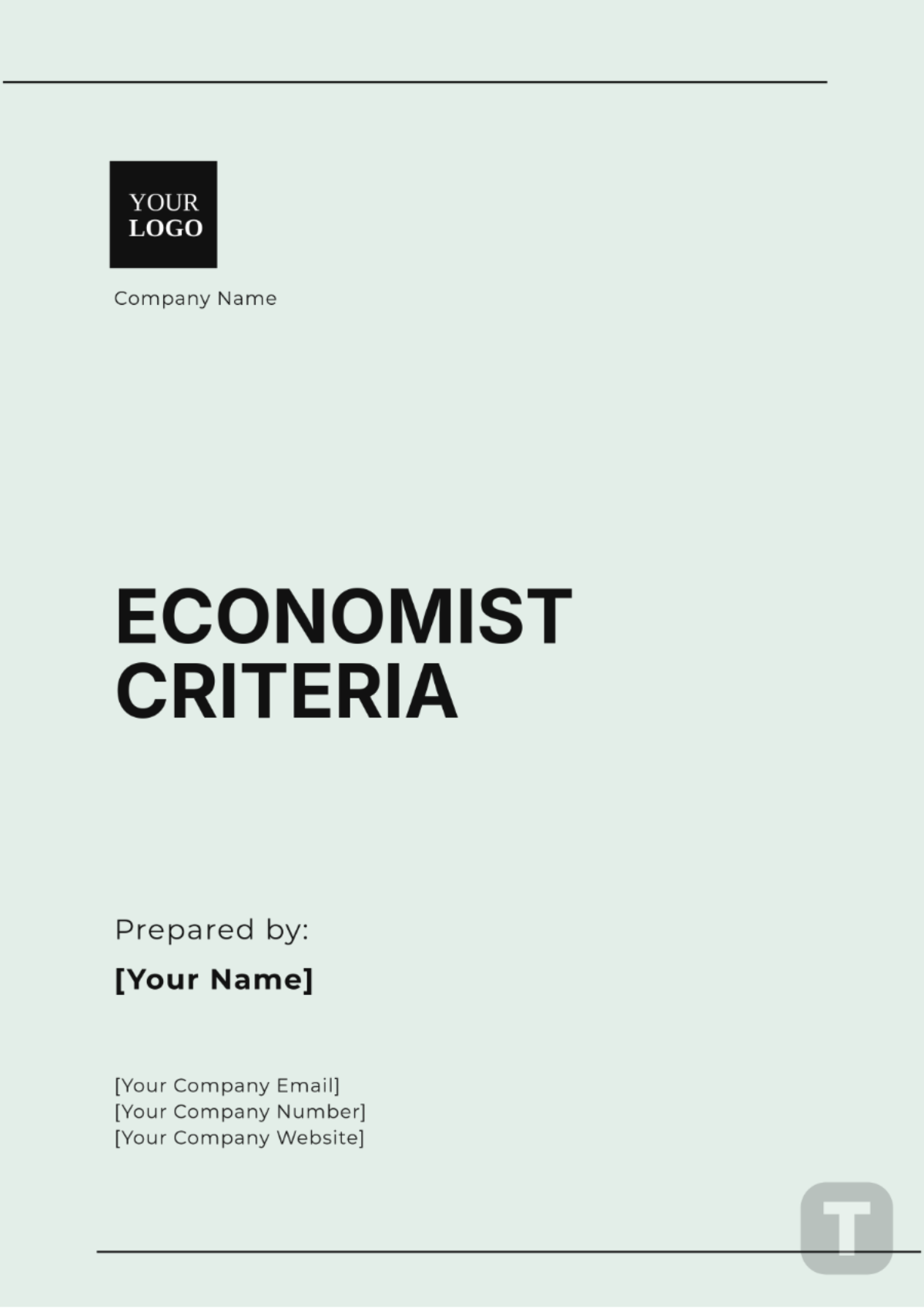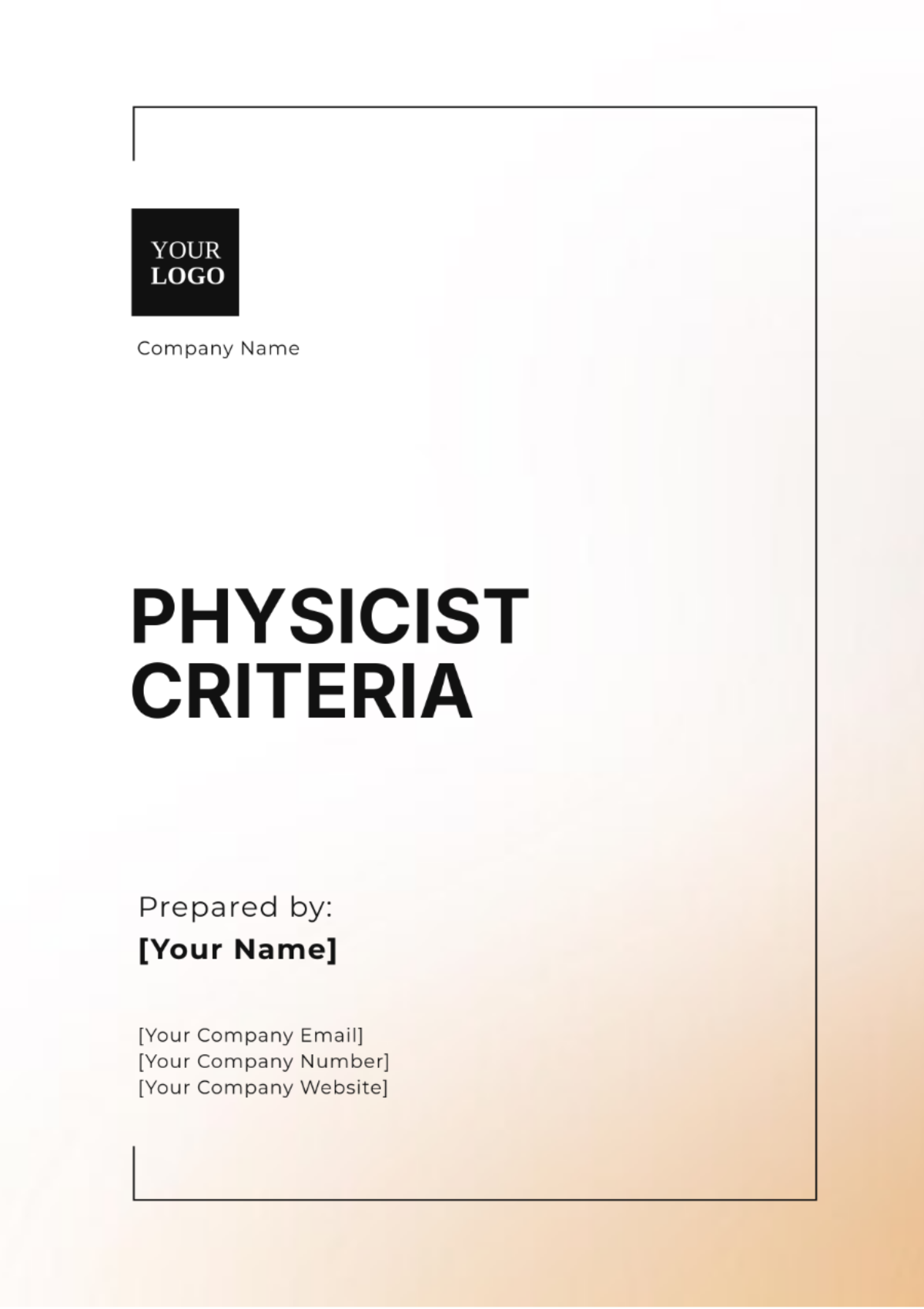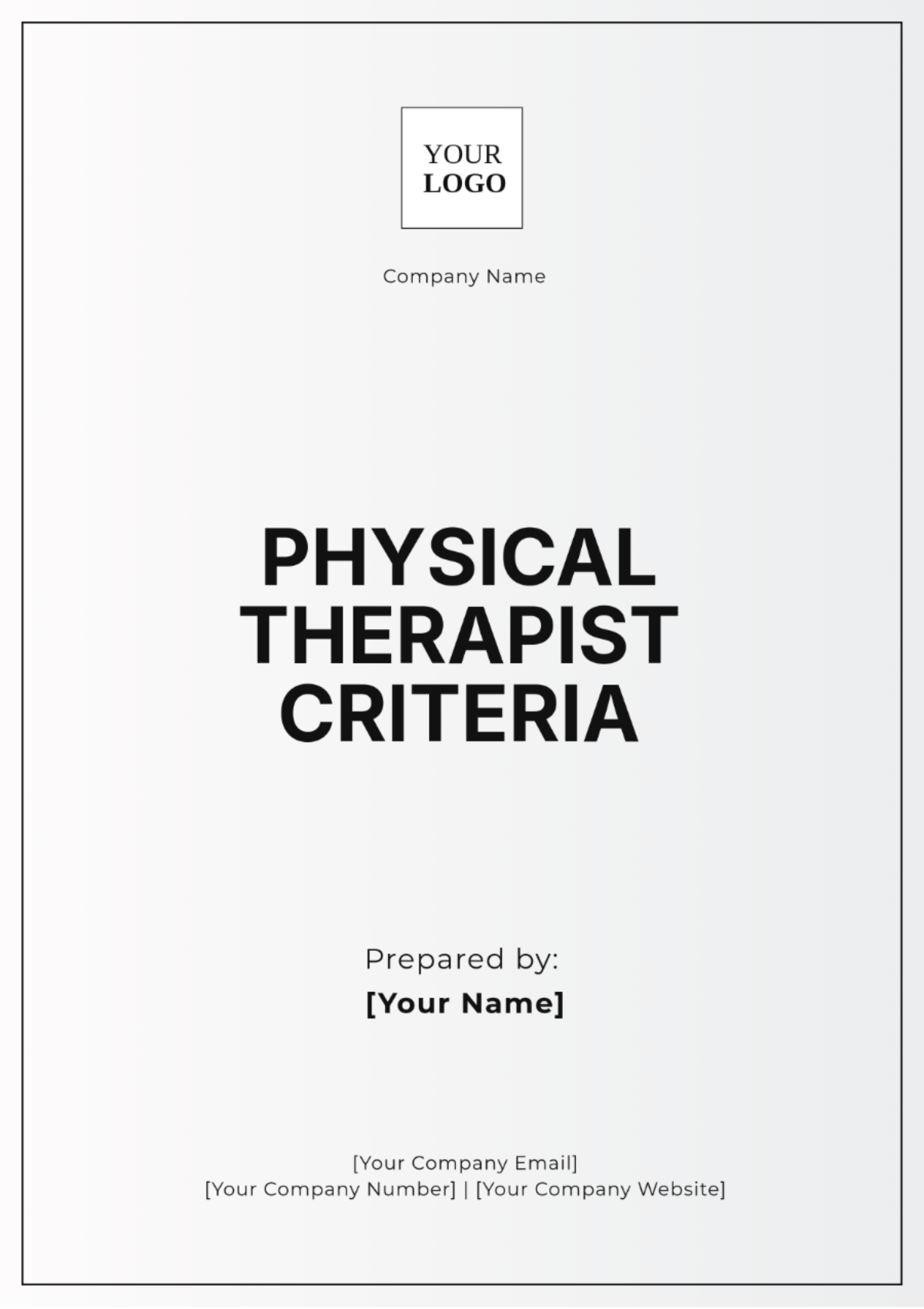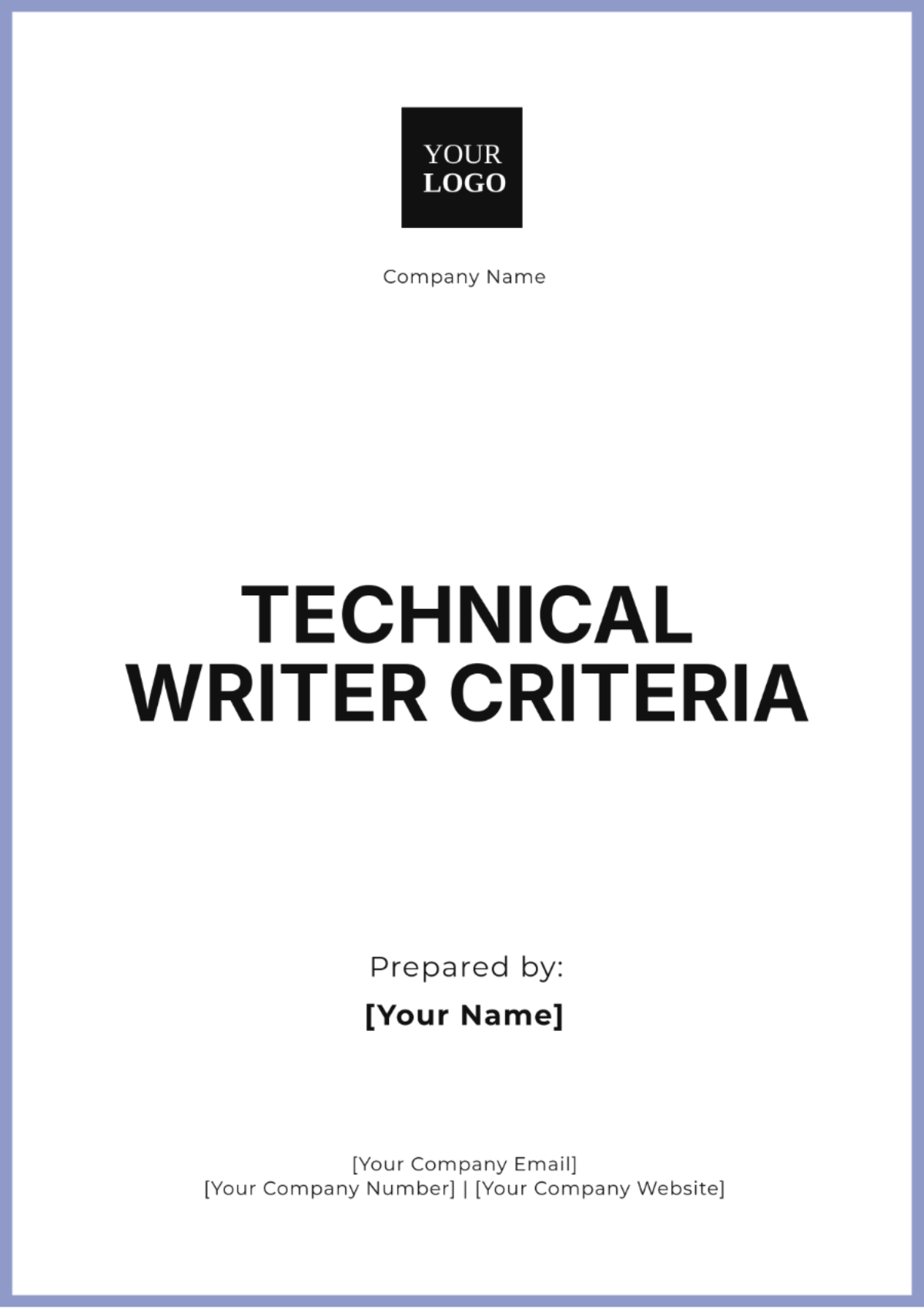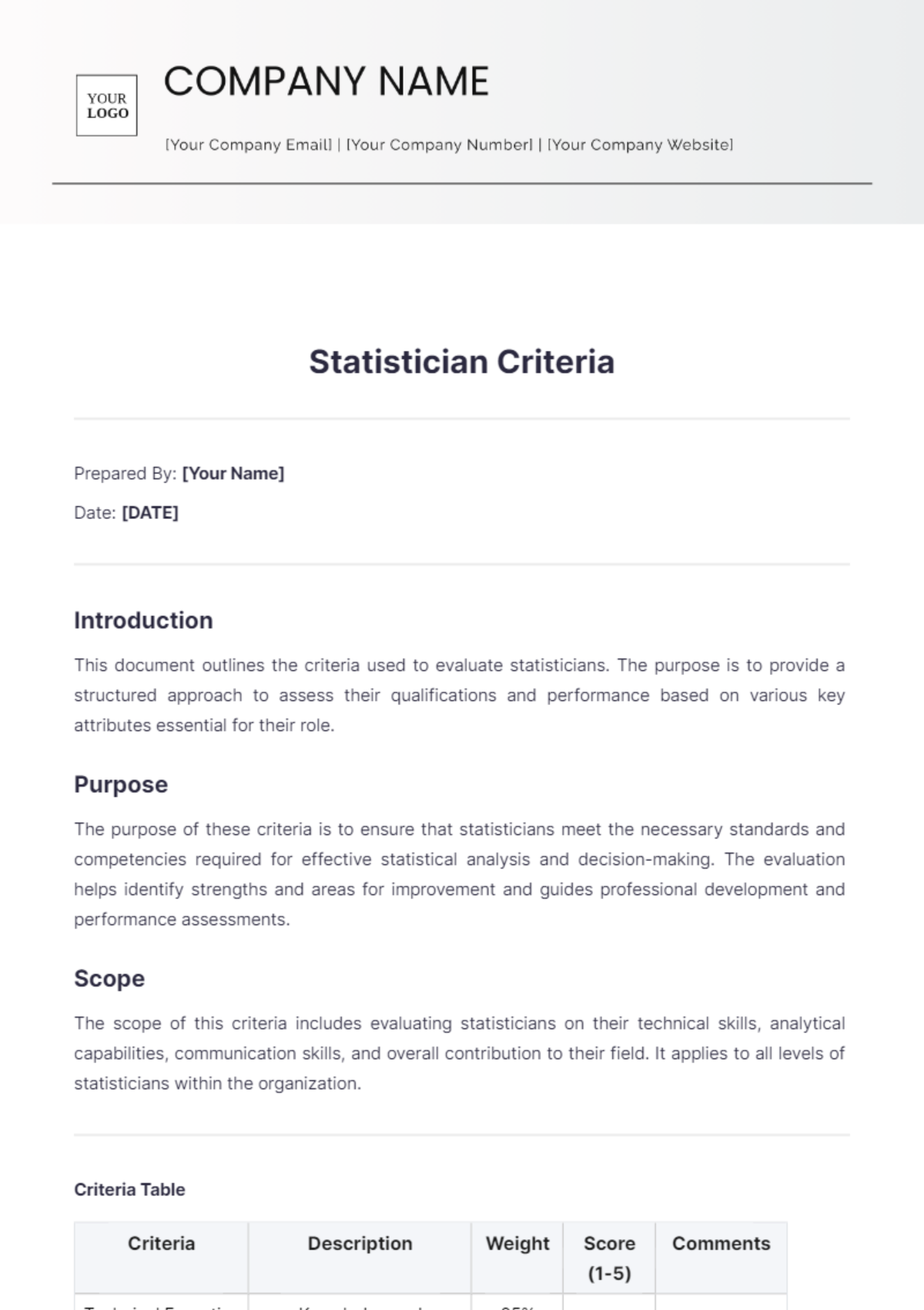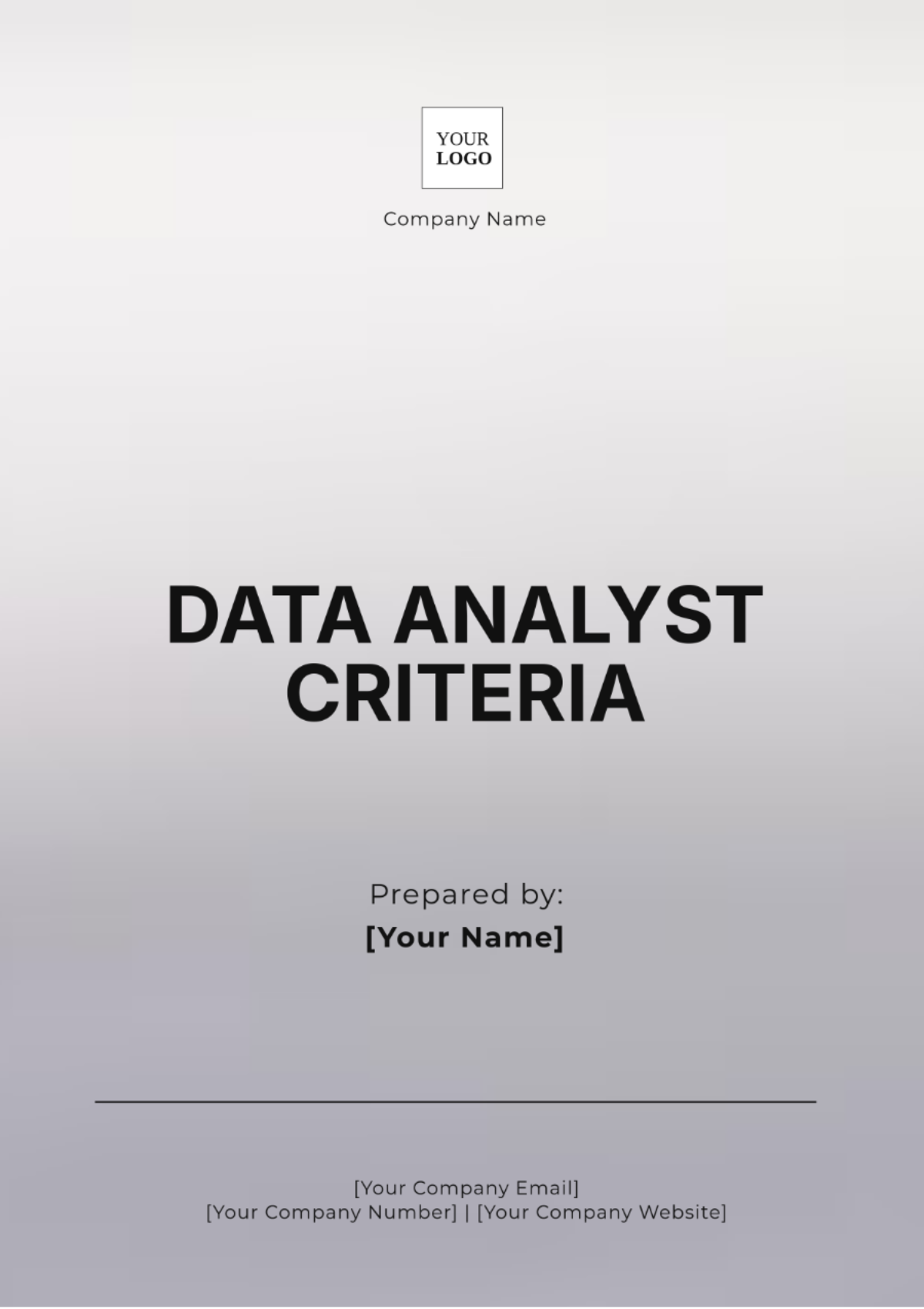Statistician Criteria
Prepared By: [Your Name]
Date: [DATE]
Introduction
This document outlines the criteria used to evaluate statisticians. The purpose is to provide a structured approach to assess their qualifications and performance based on various key attributes essential for their role.
Purpose
The purpose of these criteria is to ensure that statisticians meet the necessary standards and competencies required for effective statistical analysis and decision-making. The evaluation helps identify strengths and areas for improvement and guides professional development and performance assessments.
Scope
The scope of this criteria includes evaluating statisticians on their technical skills, analytical capabilities, communication skills, and overall contribution to their field. It applies to all levels of statisticians within the organization.
Criteria Table
Criteria | Description | Weight | Score (1-5) | Comments |
|---|---|---|---|---|
Technical Expertise | Knowledge and application of statistical methods, tools, and software. | 25% | ||
Analytical Skills | Ability to analyze complex data sets and derive meaningful insights. | 20% | ||
Problem-Solving Ability | Capability to identify problems, develop hypotheses, and propose solutions using statistical methods. | 20% | ||
Communication Skills | Proficiency in explaining statistical concepts and findings to non-technical stakeholders. | 15% | ||
Project Management | Ability to manage and lead statistical projects, including time management and resource allocation. | 10% | ||
Professionalism | Adherence to ethical standards, commitment to continuous learning, and collaboration with team members. | 10% |
Scoring System
1: Poor - The criterion is not met. Significant improvement is required.
2: Fair - The criterion is partially met. Some improvements are needed.
3: Good - Criterion met; minor improvements suggested.
4: Very Good - The criterion is met and exceeds expectations in some areas.
5: Excellent - Criterion met with outstanding performance and major contributions.
Evaluation Process
Evaluate criteria with factual evidence and data-backed examples.
Ensure fairness with consistent standards and defined criteria to avoid biases.
Provide detailed, actionable feedback on strengths and areas for improvement.

